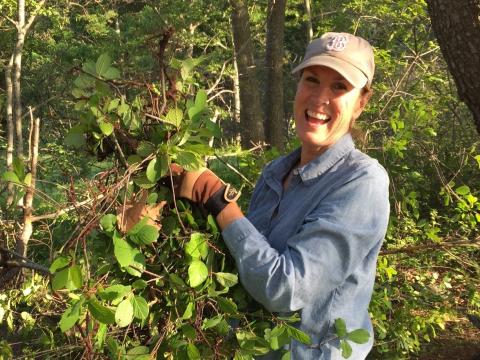7 Ways You Can Help Prevent the Spread of Invasives
SHARE

National Invasive Species Awareness Week is being celebrated February 25 to March 3, 2019. Invasive species come in many forms—plants, animals, pathogens—and are found in all types of habitats—rivers, lakes, fields, forests, urban environments, yards, oceans, and so on.
UNH Cooperative Extension’s Forestry and Wildlife Program focuses a great deal of time and effort on educating landowners and communities about invasive species, and helping them figure out how to manage invasive species. Emerald ash borer, hemlock woolly adelgid, buckthorn, garlic mustard and burning bush are just some of the invasives that we deal with every day.
Everyone can play a role in managing invasive species. Here are some ways you can help.
- Learn about invasive species. To learn about the insects impacting New Hampshire’s forests, go to NHBugs.org. To learn about invasive plants in New Hampshire, go to NHInvasives.org.
- Clean your gear after enjoying the outdoors, including hiking boots, waders, boats and trailers, off-road vehicles and more. Many invasive species like to “hitch a ride” on your gear and clothing. Learn more at PlayCleanGo.org.
- Don’t dump aquariums or live bait into waterways. Learn more at Habitattitude.org.
- Don’t move firewood. Instead, burn it where you buy it. Find more information at DontMoveFirewood.org.
- Plant non-invasive (and preferably native) plants in your garden. The NH State Forest Nursery sells seedlings, as do most county conservation districts.
- Volunteer to help remove invasive species from public lands and important natural areas. Nature Groupie maintains a list of upcoming events.
- Report suspect insects or trees at NHBugs.org.
Related Resource(s)
Author(s)
Categories
